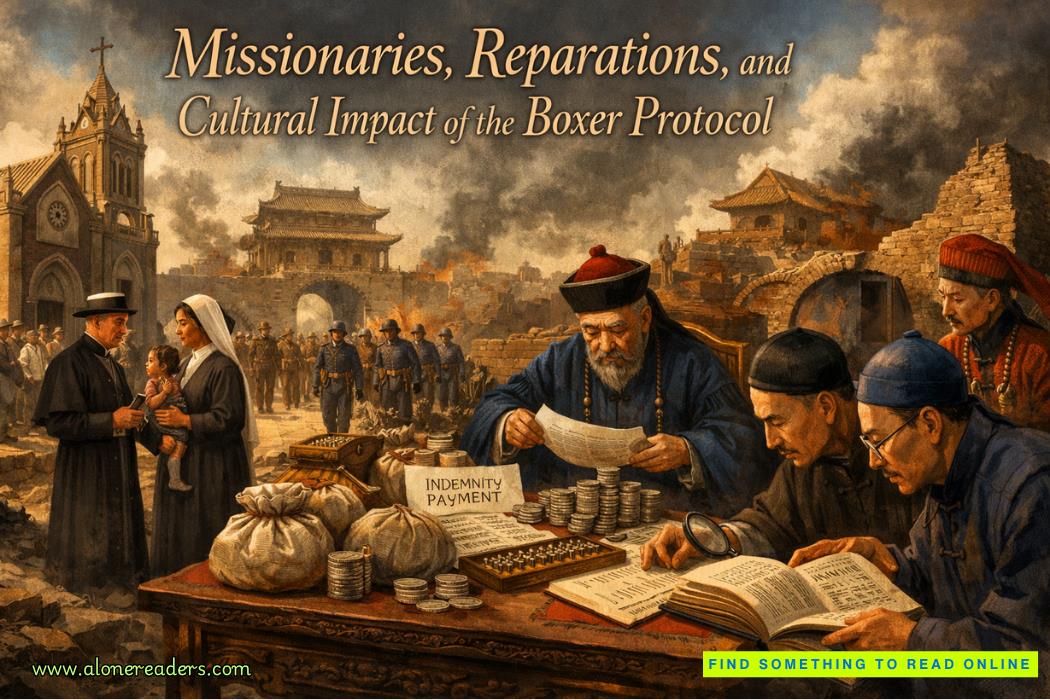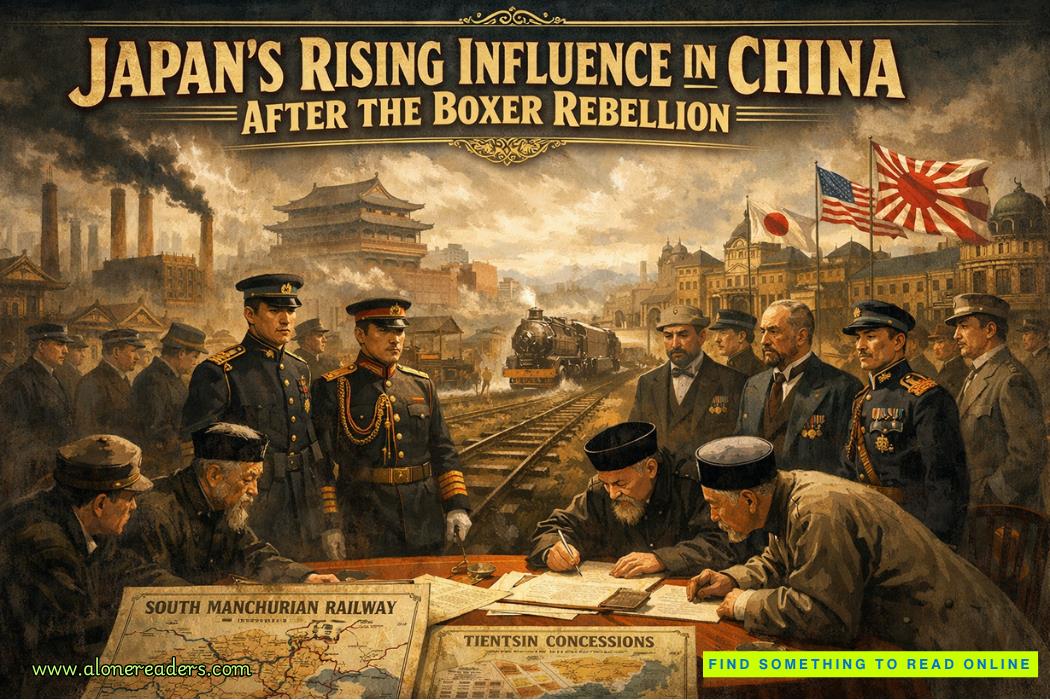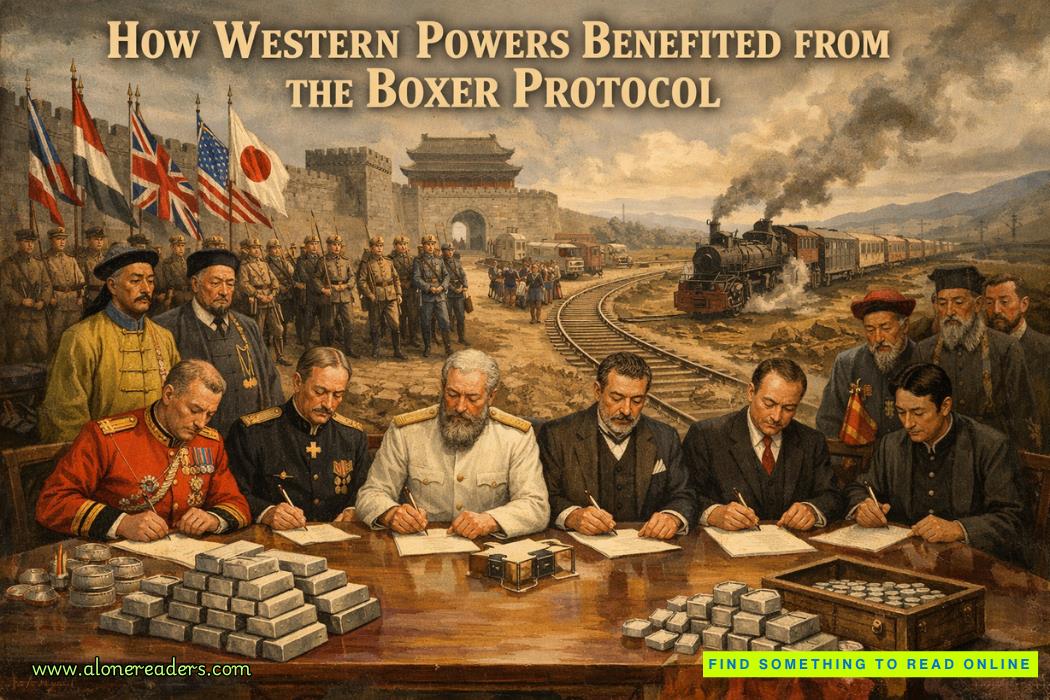Lillian looked up, surprise clearly written on her face.
“Indeed,” Edmund interjected. “Though I trust you will remember to sit properly at table. Slouching is unbecoming in a young lady.”
The correction was automatic, the sort of rigid attention to deportment that Mrs. Hale had been drilling into the girl for months. But the moment the words left his mouth, Edmund could see their effect. Lillian’s face flushed with the particularhumiliation that came from being criticized in front of strangers, her jaw tightening with a stubbornness that was pure James.
“I am not a child,” she muttered, her voice barely above a whisper.
Edmund merely pursed his lips. This was exactly the sort of behavior that had been growing more frequent in recent weeks—Lillian testing boundaries, pushing against the careful structure he had built around her education and upbringing. She was approaching sixteen, no longer the frightened waif who had arrived six months ago, and her growing independence was proving increasingly difficult to manage.
“You will conduct yourself as befits your station,” he said, his voice carrying the cold authority that had silenced grown men in Parliament. “Defiance is not an attractive quality in anyone, regardless of their age.”
For a moment, the dining room was silent except for the soft crackling of the fire and the distant sound of servants moving through corridors.
It was Isadora who broke the silence.
“Lillian,” she said, her tone carrying genuine interest rather than the patronizing sweetness that adults typically employed with young people. “I noticed several books on your desk yesterday evening when I passed the schoolroom. Are you fond of reading?”
“Yes, Your Grace,” Lillian said, her voice losing its sullen edge. “Mrs. Hale allows me access to the library, and I have been working my way through the poetry collection. Though I confess some of the older volumes are rather challenging.”
“Poetry,” Isadora repeated with the sort of enthusiasm that suggested genuine interest rather than polite courtesy. “How wonderful. Which poets have captured your attention?”
“Byron, particularly, though Mrs. Hale considers some of his work rather... inappropriate for young ladies.” A ghost of a smile flickered across Lillian’s features, the first genuine expression of pleasure Edmund had seen from her in weeks.
“Oh, the political writing is far more interesting,” Lillian said, leaning forward with an animation that transformed her entire demeanor. “His defense of the Luddites was quite brave, don’t you think?”
Edmund couldn’t help but smile. This was not at all the girl he had come to know. She was quite like her father—curious, passionate, eager to engage with ideas that few others would share or understand.
“Indeed,” Isadora replied, her eyes bright with what appeared to be genuine pleasure at discovering Lillian’s intelligence. “Though I suspect his lordship’s romantic escapades have rather overshadowed his political courage in the public mind. It is often easier to dismiss a man’s ideas if one can first scandalize society with his personal behavior.”
“Exactly!” Lillian exclaimed, her enthusiasm now fully unleashed. “And his support for Greek independence was truly admirable, regardless of what society might have whispered about his personal affairs. I think it rather unfair that a man should be judged only by his mistakes when his principles remain constant.”
Again, Edmund felt that searching glance from Isadora, though she continued to focus her attention primarily on Lillian. The girl was speaking with more passion than he had heard from her in months, her entire being animated by the discovery of an adult who was willing to engage with her ideas rather than simply correct her posture.
“Have you had opportunity to read any of the other Romantic poets?” Isadora asked. “Wordsworth or Coleridge? Their approach to nature and society offers quite a different perspective from Byron’s more political stance.”
“Some Wordsworth,” Lillian admitted. “I... rather enjoy poetry. And art.”
Edmund could only stare at the girl, who was now smiling with ease as she droned on and on about the wonders of writing. Merely a few questions from Isadora, and the girl blossomed like a flower that had been kept too long in darkness.
When had he stopped seeing her as James’s legacy and begun seeing her only as a problem to be managed?
The question haunted him as the meal drew to a close and Mrs. Hale began making noises about returning to the schoolroom for morning lessons. Lillian’s face fell slightly at this reminder of her ordinary routine, but she rose obediently, offering Isadora a curtsy that was both proper and genuinely respectful.
“Thank you, Your Grace,” she said quietly. “For listening to my thoughts about poetry. It has been quite wonderful to have someone to discuss such things with.”
The simple gratitude in her voice was devastating. Edmund realized that in his efforts to protect her from the world’s cruelties, he had failed to provide her with the intellectual companionship that her quick mind craved. He had given her safety, but not purpose. Shelter, but not joy.
“Perhaps,” Isadora said with apparent casualness, “you might join me for tea this afternoon? I should very much like to see some of these books that have captured your attention. And if your uncle permits, we might discuss expanding your reading to include some of those political treatises he mentioned.”
“Oh, yes!” Lillian exclaimed eagerly, though she sobered soon after. “If... that is alright with Uncle Edmund.”
Edmund nodded slowly, his lips tightly pursed. He would not admit to anyone that a part of his heart had grown surprisingly warm at the interaction he had just witnessed. The only thing he knew for certain was that his new wife was most certainly going to turn things around at the manor.
He could only hope that his home was adequately prepared for the whirlwind he had brought into it.
CHAPTER 9
Mrs. Pemberton’s knock came precisely at ten o’clock, as punctual as everything else in this house of rigid schedules and careful silences. Isadora had been expecting it—had, in fact, been dressed and ready since nine, her restless energy demanding occupation after a night spent listening to wind howl through the Abbey’s ancient stones while she contemplated her new circumstances.















